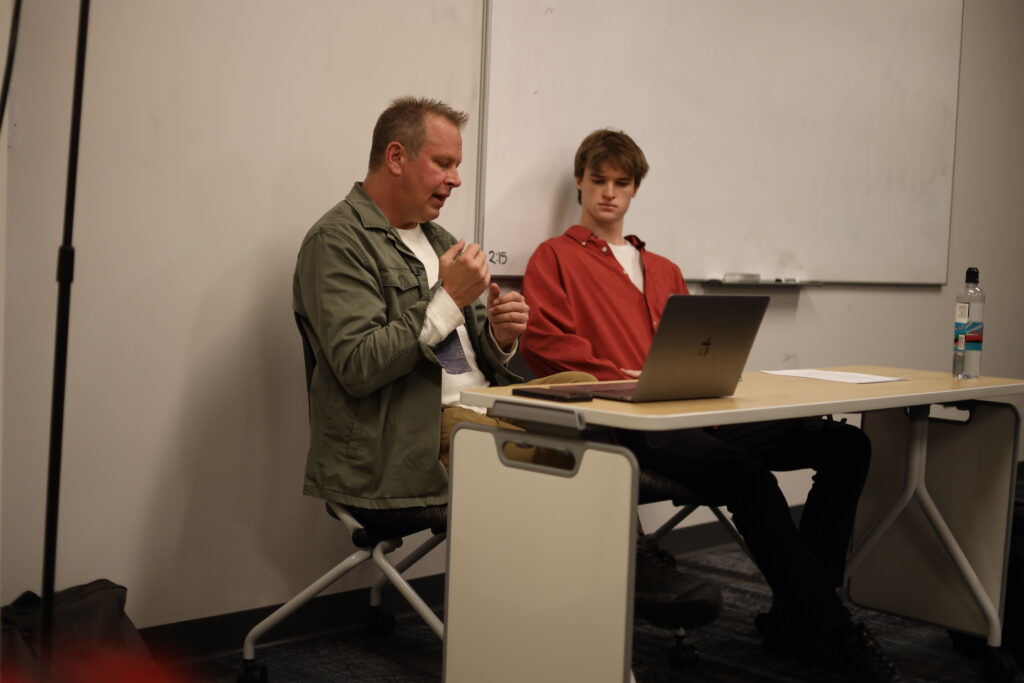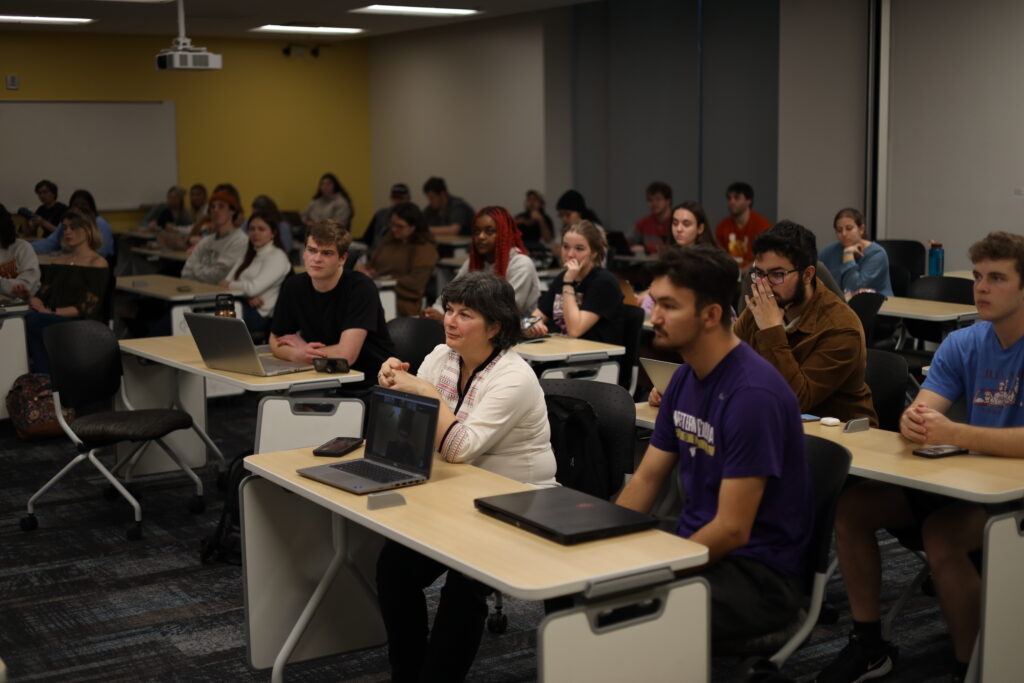While the war between Ukraine and Russia may seem foreign or irrelevant to some in the United States, the implications are global, and according to local reporter Cory Vaillancourt, it will and has already impacted the U.S.
Vaillancourt, a reporter and politics editor for The Smoky Mountain News, traveled to Odesa, Ukraine in December 2022. He spent 10 days observing and reporting on the conflict and U.S. humanitarian efforts to help Ukrainians.
Feb. 24 marks one year since the latest invasion of Russia into Ukraine. As a result: around 6 million people are refugees, the number of killed is in the thousands, a developed country of 40 million people, and the bread basket of the world is in ruins.
According to the U.S. Central Intelligence Agency’s World Factbook, Russia is the top exporter of natural gas. In Vaillancourt’s story “The messiest story you can have: A Western perspective on the war in Ukraine”, insight was given into the historical context of the war, along with its ongoing impacts, a primary symptom being the inflation of gas prices globally. Vaillancourt connects the inflation with large energy companies such as ExxonMobil leaving the Russian energy market, by “Divesting from existing partnerships, canceling future investments, and halting purchases of Russian oil and gas.”
In response to Vaillancourt’s observations, David Dorondo, associate professor of history at Western Carolina University added, “That’s not only disrupting the flow of energy from Russia, it’s also disrupting the flow of billions of dollars a day into Russia.”
During Vaillancourt’s time in Odesa, locals shared their experiences with him, despite many of them being graphic.
Having to equip body armor and first aid, Vaillancourt expected the areas to be extremely violent, but he was “rarely in harm’s way,” except for one instance, where his team had to retreat into a bunker because of missile attacks happening close by.
Vaillancourt was driven by “a duty to retrieve information, to then share that information accurately.” Despite seeing and hearing about many tragic incidents, Vaillancourt knew he needed to get all the information he could while he was there.
Since returning to the United States, Vaillancourt has published at least four stories regarding his time in Ukraine. Along with attending many Q&A sessions and interviews, one was held at Western Carolina University on Feb. 16 organized by the student chapter of the Society of Professional Journalists (SPJ) for communication and journalism students.

During the event Vaillancourt shared his perspective on the war as a reporter, providing an opportunity for communication students to gain insight into the field of journalism.

When asked “Why is it important for Americans to understand this?” Vaillancourt said that we are already paying for it. It is just a question of when.
“This war is serious, and very complex. Regardless of when we pay for this war, even as Americans, we will have to pay for it somehow. The consequences of Russia winning this war is not good for NATO, or for the American people,” Vaillancourt said.
He also shared that people he met in Ukraine wanted to talk and share their stories but were also very optimistic. In their eyes, Ukraine has already won the war.
“The people wanted their story to be told, and I see that as an expression of kindness, and generosity, which I highly value. Without those people, the stories I brought back here wouldn’t exist,” said Vaillancourt.
While Vaillancourt may not have the same perspective as someone in the military or who is “higher up on the ladder,” his insight is unique. Vaillancourt was willing to go on-site and report on the war on his own dime when not all news sources have done. In doing so, he brought valuable stories to the local community and how they can help Ukraine.
Vaillancourt participated in a similar event on Thursday, Feb. 23 “Global Spotlight” serial on “Ukraine: One ear in” with WCU professor David Dorondo from History who talked about the war in Ukraine and the German perspective on energy and security. Dr. Myron Jackson talked about Russian philosopher, Aleksandr Dugin and his impact on growing Russian nationalism. Political science professor Dr. Charles Fagan talked about the military situation in Ukraine and the latest developments.


